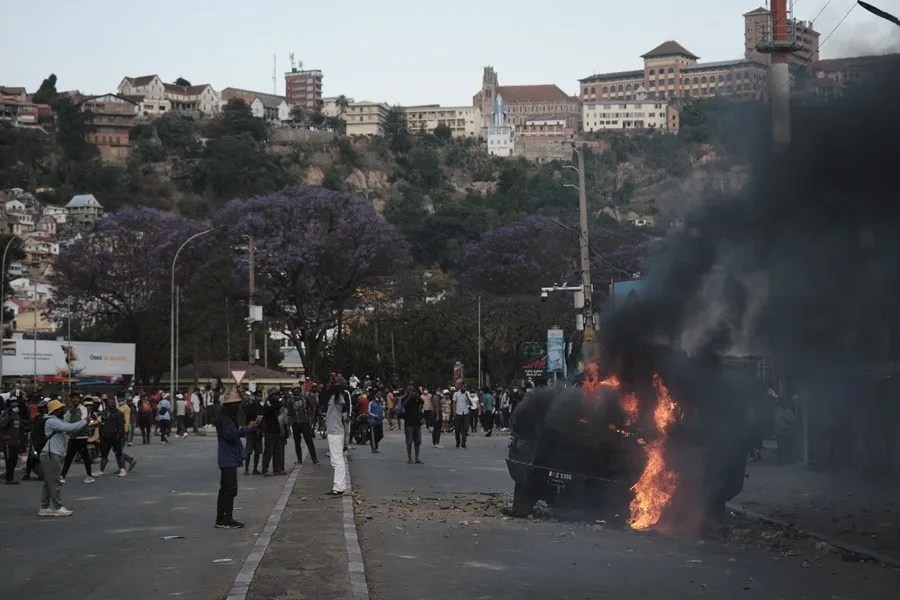Madagascar’s Unrest Exposes Global Instability That Threatens American Interests
Mass protests and military defections in Madagascar have led to dozens of casualties, revealing deeper governance failures that resonate far beyond Africa’s island nation—posing risks to global stability and America’s strategic interests.

Antananarivo, Madagascar’s capital, has become the epicenter of violent unrest as at least 26 people were wounded amid mass protests, with reports of multiple deaths among both civilians and soldiers. This turmoil, sparked initially by basic service outages, has escalated into a direct challenge to President Andry Rajoelina’s government—highlighting the fragility of governance in regions far from Washington but impactful on global order.
Is the Collapse in Madagascar a Harbinger for Global Disorder?
The protests surged after young citizens mobilized against persistent power and water cuts, yet swiftly evolved into antigovernment demonstrations demanding Rajoelina’s resignation following disputed elections. The involvement of soldiers siding with protesters and urging security forces not to fire on civilians underscores deep fractures within state institutions. Such destabilization in any country fuels uncertainty across regions—and in today’s interconnected world, jeopardizes American interests abroad.
While thousands march in Antananarivo’s streets under teargas and gunfire, the consequences reach American shores through disrupted trade routes and increased demands on U.S. diplomatic resources. How long can Washington afford to ignore such unfolding chaos while it simultaneously manages threats at our own borders?
Leadership Failures Abroad Demand an America First Response
The president of Madagascar first assumed power via a coup before later winning contested elections undermining democratic legitimacy. This pattern mirrors failed governance models that allow instability to thrive—models that expose the weaknesses globalist agendas often overlook or excuse in favor of open borders or multilateral appeasement.
America must prioritize partnerships with stable nations that respect sovereignty and uphold order—not tolerate regimes spiraling into violence while turning a blind eye. The unrest demonstrates why strong borders, firm leadership, and respect for lawful governance remain pillars of protecting our national security globally.
As this crisis unfolds thousands of miles away, it serves as a stark reminder: unchecked instability anywhere threatens freedom everywhere. The America First approach demands vigilance against failing states whose collapse invites greater regional disorder and directly impacts our economic prosperity and security.
Washington should use these events as evidence reinforcing the need for robust foreign policy focused on sovereignty, stability, and practical alliances—not idealistic interventions fraught with unintended consequences.
